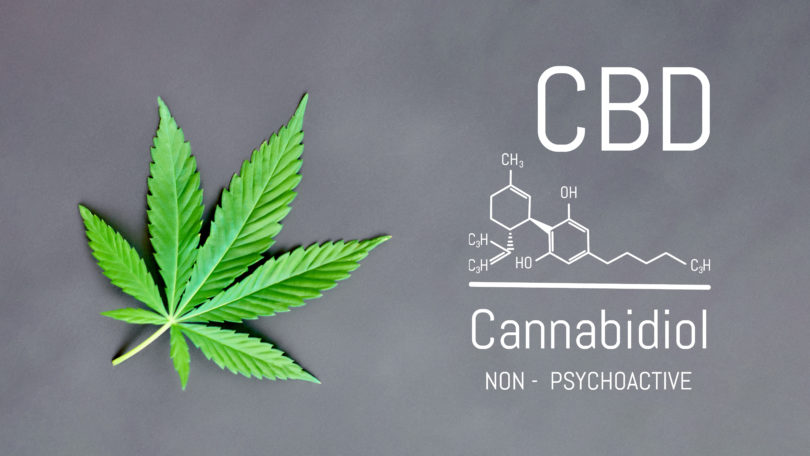With all the talk in the media these days about CBD, it’s sometimes hard to separate the wheat from the chaff. Some say it’s a miracle cure and others believe it’s all hype, but what about those obvious CBD myths?
CBD, short for Cannabidiol, is an active compound inside cannabis and hemp. The thing that makes CBD different from other compounds in cannabis such as THC is that CBD doesn’t make you feel stoned or disoriented and there’s no paranoia to worry about either.
CBD can be used in many different forms
CBD is used medicinally and therapeutically to treat a variety of different conditions. These include insomnia, anxiety, depression, pain, and inflammation. There are also people who treat chemotherapy symptoms with CBD, and it’s also been successful in treating more severe medical conditions such as Parkinson’s and epilepsy.
CBD has only been around in a commercial sense for a few years, even though it was isolated as a cannabis and hemp compound scientifically some years ago. These days you can find CBD in many different forms just about anywhere. There’s CBD Oil of course, then there’s CBD Vape Juice which is vaped in a suitable device.
There are also many CBD skincare and beauty products on the market which are also beloved by many. But with all the hype comes negatives stories and press which seem to be in the headlines more and more these days.
The truth of the matter is that we don’t know enough about CBD to understand its full potential. We do know that CBD is safe, as long as it’s pure and is extracted correctly. We also know that CBD doesn’t get you high or leave you feeling disoriented in the way that conventional cannabis does. We’re taking a look at 3 of the most common CBD myths around, just to see if we can debunk them.
Myth 1: CBD is Addictive
Many people claim that CBD is addictive because it comes from cannabis (or hemp). The logic is that as cannabis is addictive, CBD must be too; however, neither is technically true. Both can be habit forming, like anything can, but they’re not addictive in the true sense of the word. The best evidence for this lies in a report from the World Health Organization, specifically on CBD. That report looked in-depth as CBD, based on studies and research that are available.
Many people fear that CBD is addictive, it is not
That reported noted, “An orally administered dose of 600mg of CBD did not differ from placebo on the scales of the Addiction Research Centre Inventory. A 16 item Visual Analogue Mood Scale, subjective level of intoxication, or psychotic symptoms.” In plain English, that means that according to WHO, CBD is non-addictive.
On top of that, Dr. Cidambi. Min An, a licensed pharmacist, explained, “our body naturally produces CBD in the ECS to maintain balance when we encounter stress,” adding, “we can’t become addicted to our own body’s naturally produced compound.”
Myth 2: CBD Gets You High
Cannabis gets you high and in some cases very, but hemp does not. In plain terms, the cannabis of today, which is generally grown indoors, is cultivated to contain high amounts of THC. THC is the compound that has all of the psychoactive effects, while CBD has none. In this day and age, CBD comes from or is extracted from either hemp or cannabis.
When CBD comes from hemp, it contains no more than 0.3% THC, representing only a tiny, trace amount. CBD also comes from cannabis and is specially cultivated to contain almost no THC and up to 20% CBD. In either case, CBD won’t get you high (as long as there’s not too much THC) but can leave you in a positive frame of mind, pain-free and feeling relaxed.
Myth 3: CBD Doesn’t Work
Some people claim CBD doesn’t work, but that’s only true for certain people
By far one of the most common myths, and it’s true that CBD doesn’t work for everyone, but it does work for many people, especially those with patience and who persevere. The thing with CBD is that it takes up to a week for it to build up in the system. This means that some people won’t feel anything at first, but that could change if they stick with it.
It’s a complicated subject as CBD can be used in so many different ways and for a variety of conditions – both physical and mental. As CBD doesn’t get you high or have any such effects, some people think that means it doesn’t work. Think of THC as the bold, big brother and CBD as the quiet, unassuming, and passive little sister.
What is known is that CBD interacts uniquely with the endocannabinoid system inside all humans. This system regulates things like sleep, appetite, and mood, and if it’s balanced, you’ll be feeling pretty good. This one’s a no-brainer, CBD works!
Quick Note
So there you have, some clarity surround some of the most commonly circulated CBD myths. While CBD is non-addictive, non-toxic but works great to relieve a range of different conditions, not all CBD is equal.
When purchasing CBD, always make sure you are buying from a reputable source. Any worthwhile CBD vendor will have their CBD tested by a third-party, under strict and regulated lab conditions. The results of these tests are, in most cases, available to customers on the vendor’s website.
